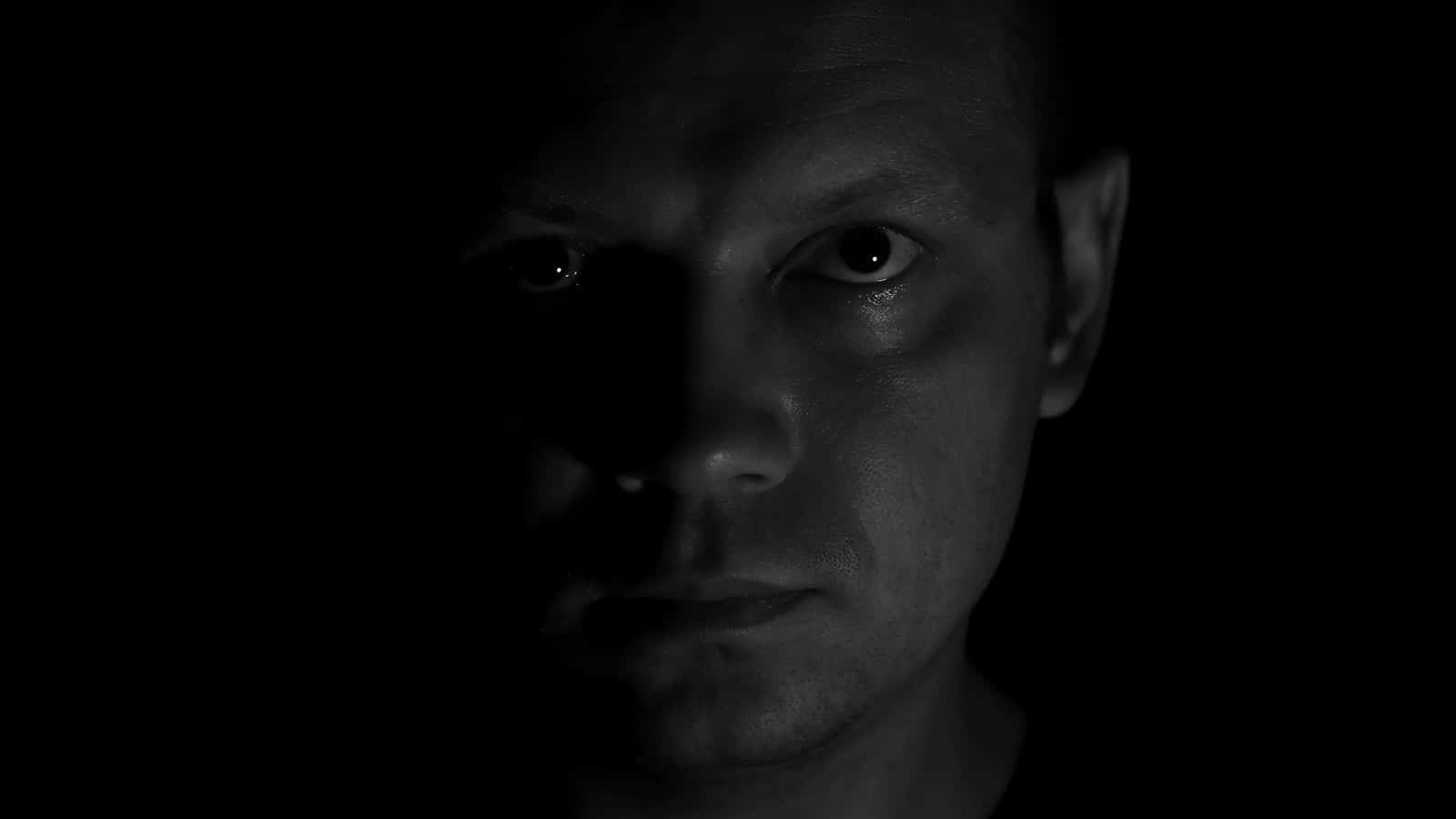Narcissists are rarely ever direct. Many of their tactics involve using disguised forms of various types of hostility. This cruelty allows someone, especially a passive-aggressive narcissist, to gain plausible deniability for their actions and avoid taking accountability.
It can be tough to figure out if someone is behaving in a concerning or harmful way with all that indirectness. That’s why it’s wise to spot the warning signs before you’re too deep! Here are six red flags that reveal a passive-aggressive narcissist.
1. A Passive-Aggressive Narcissist Displays Social Hostility
Social or relational hostility involves treating others in ways that ostracize them or invoke “social punishment.” The trick with a passive-aggressive narcissist is doing this in disguised ways to avoid direct aggression.
This sort of toxicity is a complex topic. Most human beings develop natural social awareness to some degree to dissect the nuances of various interactions. This action means that even subtle acts of hostility in a relational context can feel very powerful. There’s no need for direct attacks when a narcissist can communicate their message with various social forms of communication.
For example, a passive-aggressive narcissist may:
· Socially Excludes Others
Have you ever been trying to fit in well in a group, only to have that group seem to close into a circle and leave you standing outside? Passive-aggressive narcissists love to find ways to do that to those they resent. They’ll expertly orchestrate social situations to exclude you purposefully.
· Give “Silent” Treatment
A narcissist isn’t going to tell you when they’re upset directly. Instead, they’ll ignore you or act like you’re not there to make communication impossible. Silence is a prevalent tactic of narcissists, say studies. This is because it avoids direct conflict and instead serves as a way to goad you into initiating hostility. The silent treatment and avoidance send an unequivocal relational message that gets on anyone’s nerves!
· “Accidentally” Humiliate
A passive-aggressive narcissist knows how to hit you where it hurts, but they don’t want to be the “bad guy” of a situation. So they find ways to indirectly talk about things that’ll hurt you, usually in calm and innocent-sounding ways, in front of others. This form of covert punishment is designed to isolate you from social interaction!
2. Non-Communication Of Resentment And the Desires Of A Passive-Aggressive Narcissist
If a passive-aggressive narcissist has a problem with you, they’re not going to tell you the way that an average person would. If they want something, they’ll keep it to themselves and hope you figure it out.
This is because their passiveness involves non-communication. They want you to get the message, but they don’t want to tell you that message. It’s an unreasonable expectation and, left unchecked, becomes extremely tiring and toxic. This non-communication can happen by:
· Sulking
When a narcissist is upset, they’ll make it evident by being grumpy, sulky, sour, and irritable. They’ll create challenging levels of tension while insisting that everything is okay.
· Hint-Dropping
A narcissist who wants something doesn’t want to ask for it directly. They’re too worried you will see it as something they have to owe you for. As such, they try to drop hints, so you pick up on their desires and fulfill them without owning that truth.
· Wishful Wishing
This is the closest that passive-aggressive narcissists get to direct communication, and it’s incredibly annoying! They’ll wish out loud for what they want but then dump that wish out quickly. This employs guilt-tripping mechanisms and allows them to pretend that their idea isn’t theirs. For example: “It would be so nice if someone would get me some coffee, too, but I guess that’ll never happen, so never mind!”
3. Direct Or Underhanded Sabotage Goes Along With A Passive-Aggressive Narcissist
If a narcissist doesn’t want you to succeed, they’ll try to sabotage you. They’ll get in your way, mismanage various tasks, break agreements, and turn others against you or each other.
Direct sabotage can be easy to spot, however. As such, a passive-aggressive narcissist will often opt for subtler approaches to undermining you and adding to your difficulties. They may do this in the following ways:
· Procrastination
A passive-aggressive narcissist may stall for time to sabotage your efforts. This is especially true if they must complete a task to go smoothly. Research shows that this is a surprisingly common narcissistic tactic.
· Poor Performance
If they want to sabotage your progress, a narcissist who needs to work with you may intentionally underperform. They’ll do lousy work or “forget” to do various tasks, then shift the blame away from themselves and act innocent. Worse still, they may leave things wholly undone!
· Stalling
Passive-aggressive people find ways other than procrastination to stall you. They may set up unnecessary red tape and obstruct attempts at communication and progress. They might run late for all your meetings or try to slow you down in other ways. They’ll use stubbornness as a tool against you.
4. A Passive-Aggressive Narcissist Excels At Passing Around Blame
Those with high narcissism always refuse to take responsibility for their actions. They don’t want to be held accountable for anything, so they’ll find ways to pass around blame. They may do this by:
- Blaming others for what they’ve done, insisting that you should have done more or known better. For example: “I only forgot because you didn’t remind me!”
- Playing the victim by acting like they’re being persecuted unfairly. For example: “There’s no way for me to explain myself here because you’ve already decided I’m wrong!”
- Guilt-tripping others so they can get away with their actions scot-free. For example: “You know I’ve been having such a hard time with my family lately. I can’t believe you’re being so harsh on me!”
- Gaslighting others so they think their perception is wrong. For example: “I wasn’t being unfair to you. You’re probably just feeling exhausted, so you took me the wrong way.”
- Deflecting the topic to distract from the issue at hand. For example: “But you didn’t help me when I wanted your help last month!”
Not all of these methods are necessarily passive, but they’re often used to get out of trouble quickly. A passive-aggressive narcissist won’t want to admit to their faults actively, so this is their next best option.
5. A Passive-Aggressive Narcissist Uses Disguised Forms Of Verbal Hostility
Verbal hostility, such as insults and verbal attacks, is directly aggressive. But that doesn’t mean that a narcissist won’t find ways to be more passive. All they need to do is disguise that hostility. They’ll do this with:
· A Passive-Aggressive Narcissist Gives Backhanded Compliments
When a toxic person compliments you, they’re rarely doing it genuinely. It’s typically a backhanded way to insult you while making them look innocent. They might say, “Wow, great dress – I used to dress like that in high school.” Or perhaps they’ll look you up and down and say they admire your confidence for going out dressing as you did. It sounds nice, but it’s not, and you can tell it isn’t.
· Brutal “Honesty.”
There’s a difference between being honest and just being cruel. A passive-aggressive narcissist is the latter, but they look like the former. They’ll insist they want the best for you, but their words are unreasonably hurtful and disrespectful.
· Humor and the Passive-Aggressive Narcissist
A passive-aggressive narcissist will often make use of hostile humor. They’ll make digs at various aspects of you but insist they were joking. This lets them express their true thoughts while painting you to look like you’re overly sensitive.
· Disclaimers
The passive-aggressive narcissist may fill their sentences with disclaimers to make themselves seem mindful. They may say “No offense, but…” or “I hope you don’t think I’m rude, but…”, as well as other careful statements. They use these to protect themselves against the inevitable backlash for the harsh words they’ll say. Since they “prepared” you, they’ll make your adverse reaction out to be your problem.
6. A Passive-Aggressive Narcissist Has An Exaggerated Need For Attention, Validation, and Assurance
Lots of people do want and need extrinsic validation from those around them. There are even plenty of people with unhealthy levels of this need who aren’t narcissists. But those with many narcissisms will express this exaggerated need in notably harmful ways.
A passive-aggressive narcissist will want to seek out and almost demand the assurance they desire. But the keyword here is their “passiveness.” They don’t directly ask for attention – they try to grab it in various toxic and manipulative ways. This behavior is a huge red flag and can come from any following emotions.
· Fear Of Rejection Or Ridicule
A passive-aggressive narcissist is often highly motivated by various forms of fear. They may be afraid of rejection, of being wrong, or of being ridiculed. This fear causes them to crave validation to alleviate this fear. They’re worried that people will call their bluff or will see them differently than they wish to be perceived. As such, they find ways to gain the assurance they want, typically through underhanded means. This also means that many narcissists fear vulnerability and won’t be open to genuine intimacy and honesty with others.
· Constant Anxiety
A lot of narcissists experience constant states of anxiety. This emotion elevates toxic behavior because they project their fear, accusing others of various things without evidence or truth. They’re so anxious that they believe their anxieties are entirely rational and take that out on everyone around them. In a passive-aggressive narcissists, this can be seen in how they constantly talk about impending doom or how everyone is out to get them. Studies show a high correlation between anxious and narcissistic tendencies.
· Threat Perception
The aforementioned constant anxiety means that a passive-aggressive narcissist perceives everything as a threat. They take everything personally. They’ll think it was directed at them if you say something casually. Everything is seen as a personal attack, which can be exhausting for the people around them. They don’t take anyone in good faith!
Unfortunately, no validation or assurance can be enough for a passive-aggressive narcissist. Not only do they fail to internalize anything positive you say truly, but they also don’t believe those words.
This is especially true for individuals with NPD, typically a disorder based on trauma. They may believe they’re not worthy of love, so they desire that love but can’t think it may be genuine. They’ll do whatever it takes to get praise, but at the end, it won’t make them feel good the way they wish it did.
Final Thoughts On Some Red Flags That Reveal A Passive-Aggressive Narcissist
You can’t always discern who’s a narcissist or just a bit of a toxic person with a few toxic traits. That’s why spotting red flags from anyone whose passive aggression may harm you is vital! Only then can you say no to their machinations.

















 Community
Community

